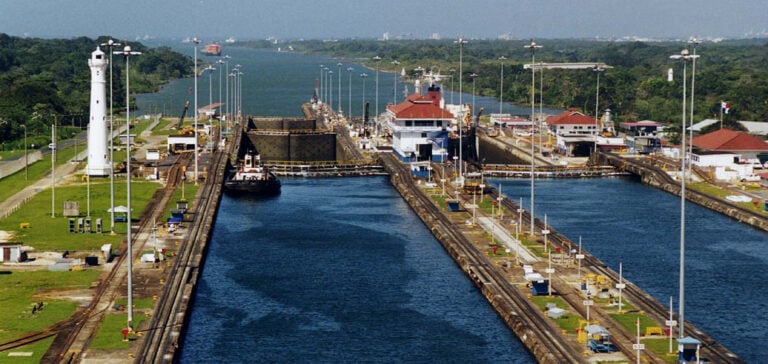Delays at the Panama Canal have pushed more volumes of liquefied natural gas (LNG) into Europe, according to sources. This is despite the economic advantages of arbitrage between the USA and Asia, which outweigh Europe in the short term.
While traders await the start of intense price competition between Europe and Asia this winter, milder temperatures in China and Europe are keeping the current battle for US volumes under control. On October 24, Platts, a subsidiary of S&P Global Commodity Insights, valued the December JKM benchmark price, reflecting LNG delivered in Northeast Asia, at $18.54/MMBtu, and the following month’s JKM derivatives at $18.70/MMBtu.
Transport Challenges
Typically, with higher LNG prices in Asia, additional tons from the USA are likely to flow to Asia, where profit margins from the Gulf of Mexico are higher. However, although freight rates from the Gulf of Mexico to Japan and Korea have fallen slightly, they remain significantly higher than those to northwest Europe.
The cost of freight from the Gulf of Mexico to Japan and Korea was valued at $3.41/MMBtu on October 24, down 4 cents/MMBtu on the previous day. The route from the Gulf of Mexico to northwest Europe was valued at $1.63/MMBtu on October 24, down 8 cents/MMBtu on the previous day.
Factors affecting Arbitrage
The economic benefits of arbitrage between the USA and Asia remain favorable in the short term, but sources believe that fundamentals do not support sending additional volumes to Asia from December onwards. Delays and limited slot availability at the Panama Canal have led to a flow of new products to Europe rather than Asia.
Despite these favorable economic advantages, U.S. exports to Europe continue to grow. U.S. LNG exports currently stand at 6.24 million tonnes as of October 25, an increase of 1.09 million tonnes since the start of the week on October 23.
Forecasts for the future
Current above-average weather conditions have eased sentiment in Europe and Asia, with most US volumes still finding takers in Europe. However, sources suggest that as soon as a cold snap arrives in Asia, price competition between regions will intensify, and Europe and Asia will have to start setting higher prices to attract the volumes needed for winter, in case stocks run out quickly.
In short, delays at the Panama Canal are having a significant impact on LNG flows to Europe, despite the economic advantages of arbitrage to Asia. Current weather conditions and logistical constraints continue to favor Europe as the preferred destination for US LNG.






















